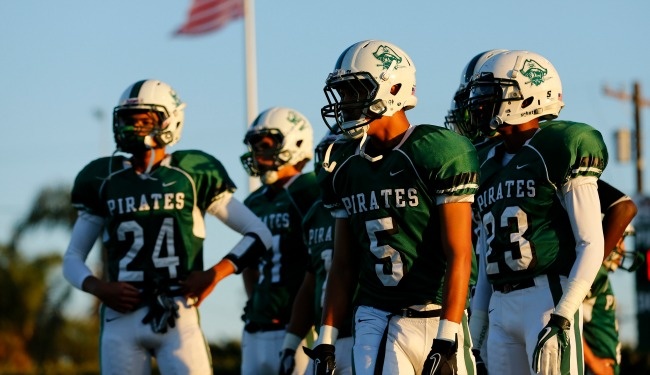Note: This is the third part in a three part series I was asked to write in response to a question posed on August 8, 2015 by the Lancaster (PA) Newspaper Editorial Board, “What is the Purpose of High School Sports?” In this final column, I offer an alternative model to our current system of high school sports. It appeared in the Sunday, September 13, 2015 edition of LNP.
It’s Time to Expel Sports From Our Public Schools
Although some avid sports fans might not believe it, our nation’s educational system would survive privatization of interscholastic sports teams, including football.
While our schools might be less dynamic and in some ways less fun without the teams, they would continue to go about the business of educating. And that education would likely be improved.
Physical education and wellness programs could be expanded, resulting in more students being able to avail themselves of health-and exercise-related resources. Thus our educational system would be better positioned to serve our nation’s broad, long-term health and fitness needs.
Athletes and coaches would continue to have the opportunity to hone their skills. Elite sports activities and training would simply shift to other local sponsoring agencies.
In Europe, the responsibility for developing elite athletes and teams is borne by private sports clubs or professional teams. When a youngster is identified as having superior talent and potential for a particular sport, he or she pursues that sport through a local club program. The educational system’s athletics programs focus on activities aimed at broad-based participation, lifetime enjoyment and improved public health.
The American educational system does the opposite – spending a lot on activities that primarily entertain the public and serve the needs of a select group of athletes. Could it be that the Europeans have it right?
While the move to a club sport system may sound radical, it is not. In some sports, such a shift is already underway. Many elite competitors in soccer, basketball and swimming have come to value participation in local clubs or on traveling Amateur Athletic Union or all-star teams above their high school teams. And fewer than 50 percent of high school coaches are professional teachers.
These trends are simply the first signs of the decoupling of elite athletics and high schools.
Critics of such change will cite research indicating academic and social benefits from participation in high school athletics. But do these positive correlations exist because of involvement with a high school team or simply any team, regardless of its sponsor? Athletics contribution to building character and teaching lessons of discipline, sportsmanship, teamwork and sacrifice will remain, regardless of who sponsors our young people’s teams.
And, if we believe athletics offer the educational and community-building benefits, why does our system weed out kids at younger and younger ages? If children learn so much from participation in athletics, shouldn’t school-sponsored athletics be designed to involve everyone? A healthy lifestyle does not just happen. Lifelong fitness principles and habits must be taught, nurtured and practiced to become an ongoing part of an individual’s lifestyle.
Obviously, community resistance to such a shift would be enormous. The history and culture of high school sport are very deep and powerful. I would argue that the driving force fueling the passion for a local team is not high school pride but community pride. The high school team is simply the vehicle through which community pride is currently expressed.
After an initial outcry, fans would come to identify with the team of their choice, even if the sponsor is a local sports club, car dealership or a feeder program for a professional team. Regardless of the outcry, we must critically assess our priorities. And we must go where reason, data and the research take us.
Ultimately, American education must structure itself according to what will best enable it to fulfill its responsibility to meet the educational and public health needs of our children. And as much as we love sports, we must value education more.
Our schools will survive without interscholastic sports. While they may be less entertaining, the education of our populace would continue and likely improve as the focus on education would intensify.


I played sports and so have my kids, but the cost associated with reward to students is unrealistic. I feel that more students should be pushed into job skilled placement opportunities. These kids today need to hit the ground with at least a subset of skills to feed themselves with. I think that all colleges should appropriately post fees assosciated with athletics to students that are not involved in sports, These fees should be optional, if you choose to decline participation in that group of activities.. Being forced to pay for a dorm and eating ,is not the same as sending a basketball team 300 miles away. I’m for removing sports completely out of public school. The faster the better.